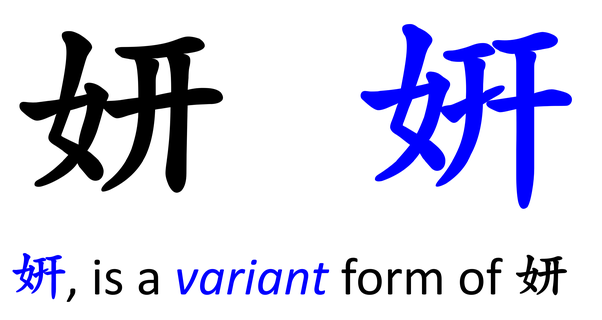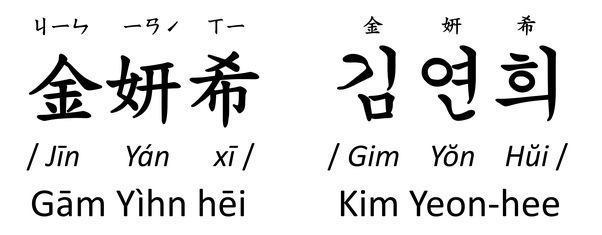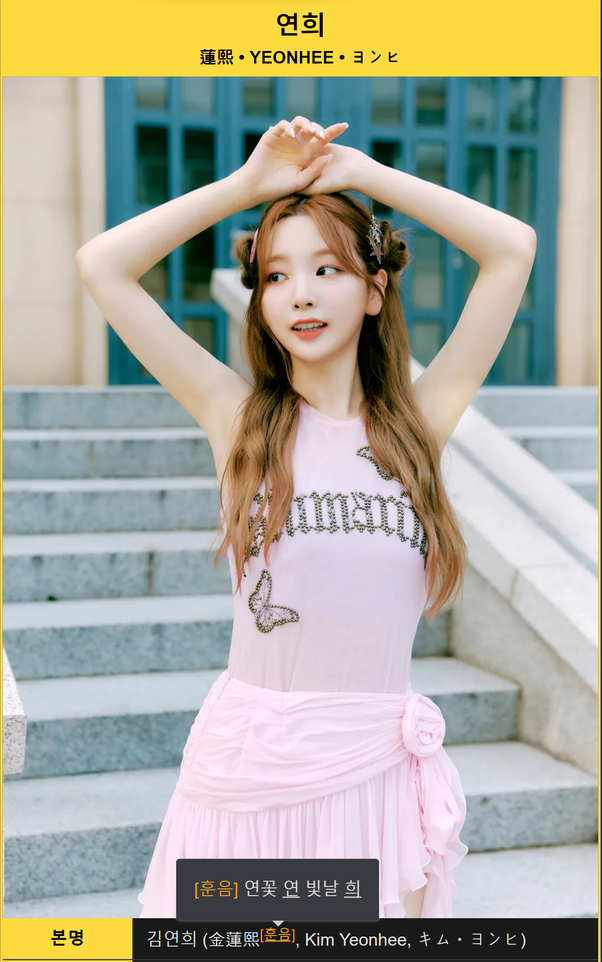Yes.
Here is my perspective as a Hàn (Chinese) Character-topic enthusiast Korean individual.
Korean reading for each Hanja character:
金

Translation:
Hun’dok: 1. soé [“iron”, “metal (alloy)”] 2. sŏng sshi [姓氏 = “family surname”]
Ŭm’dok: 1. gŭm 2. gim
Radical: (gold) 8 strokes
Stroke Order: 8 strokes
姸

Translation:
Hun’dok: gop da [“to be beautiful”, “to be pretty”, “to be lovely”, “to be nice”; “to be kind”, “to be nice”, “to be kind-hearted”, “to be warm-hearted”, “to be good-natured”]
Ŭm’dok: yŏn
Radical: (woman) 3 strokes
Stroke Order: 9 strokes
A minor difference between 妍 and 姸 even though the reading and pronunciation are precisely the same.

希

Translation:
Hun’dok: ba ra da [“to wish (for)”, “to hope (for)”, “to want”, “to desire”; “to long for”; “to look forward to”], hŭi mang ha da [希望하다 = “to hope (for)”, “to wish (for)”]
Ŭm’dok: hŭi
Radical: (turban) 3 strokes
Stroke Order: 7 strokes
So, here is the comparison between the two languages (through Romanization spelling)

As for name legitimacy

Although her Hanja name is different, the pronunciation reading is the same.
The only thing that I’m not too sure of is the Chinese perspective about the name “金妍希” /Jīn Yán xī/ being a legitimate Chinese name because I haven’t personally heard of it.
To any Chinese Quorans out there, please comment below about your perspective, much appreciated! 🙂